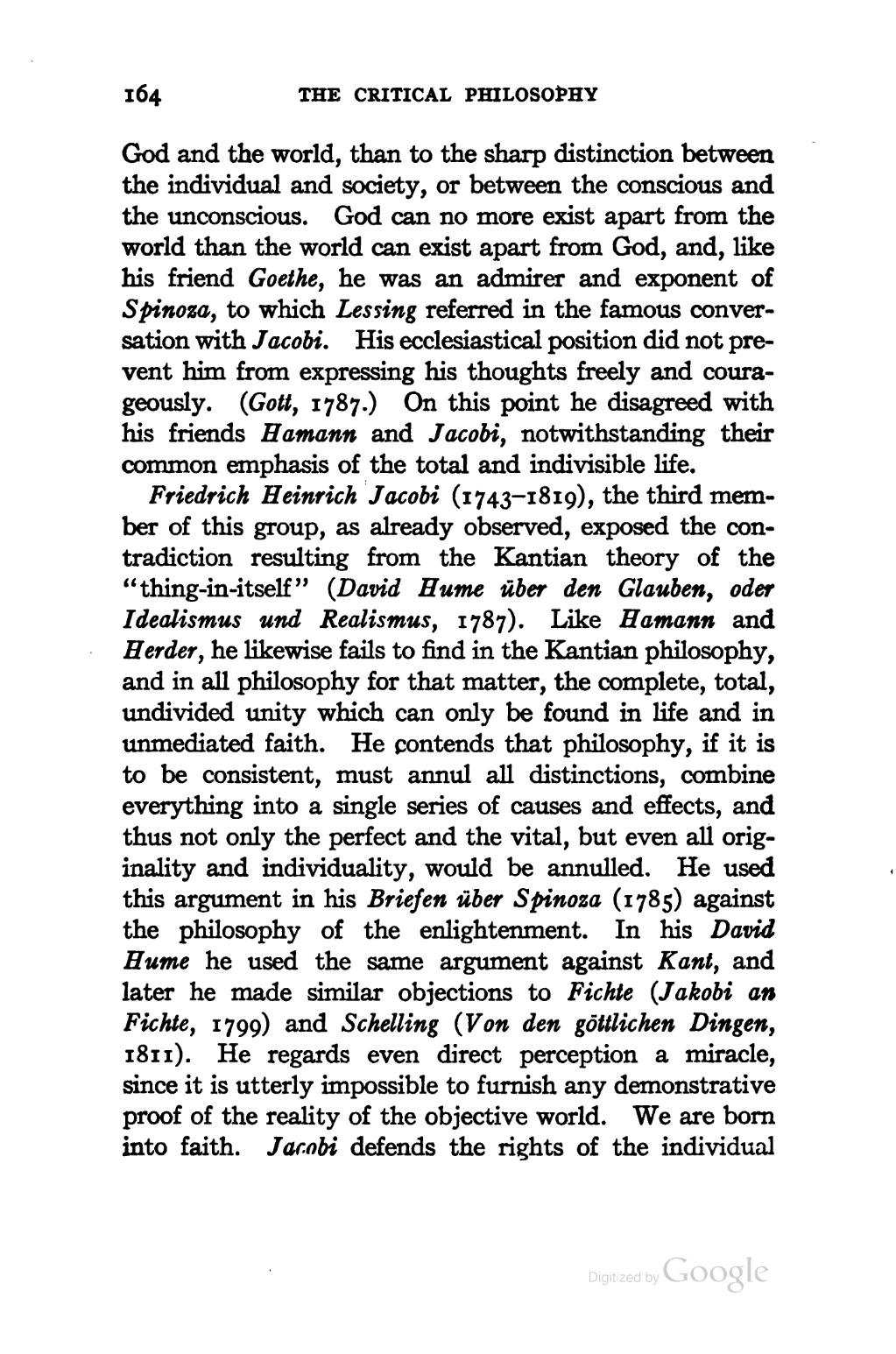God and the world, than to the sharp distinction between the individual and society, or between the conscious and the unconscious. God can no more exist apart from the world than the world can exist apart from God, and, like his friend Goethe, he was an admirer and exponent of Spinoza, to which Lessing referred in the famous conversation with Jacobi. His ecclesiastical position did not prevent him from expressing his thoughts freely and courageously. (Gott, 1787.) On this point he disagreed with his friends Hamann and Jacobi, notwithstanding their common emphasis of the total and indivisible life.
Friedrich Heinrich Jacobi(1743-1819), the third member of this group, as already observed, exposed the contradiction resulting from the Kantian theory of the "thing-in-itself" (David Hume über den Glauben, oder Idealismus und Realismus, 1787). Like Hamann and Herder, he likewise fails to find in the Kantian philosophy, and in all philosophy for that matter, the complete, total, undivided unity which can only be found in life and in unmediated faith. He contends that philosophy, if it is to be consistent, must annul all distinctions, combine everything into a single series of causes and effects, and thus not only the perfect and the vital, but even all originality and individuality, would be annulled. He used this argument in his Briefen über Spinoza (1785) against the philosophy of the enlightenment. In his David Hume he used the same argument against Kant, and later he made similar objections to Fichte (Jakobi an Fichte, 1799) and Schelling (Von den göttlichen Dingen, 1811). He regards even direct perception a miracle, since it is utterly impossible to furnish any demonstrative proof of the reality of the objective world. We are born into faith. Jacobi defends the rights of the individual
